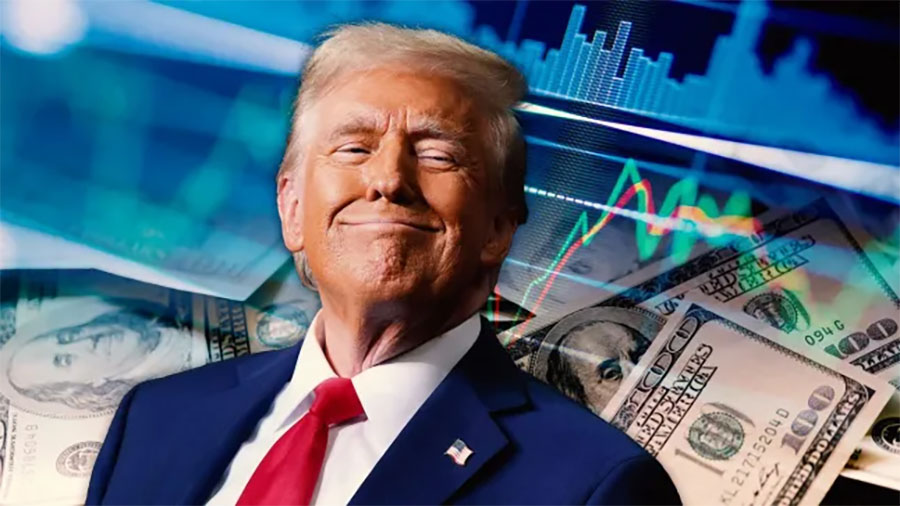
Photo Credit: Eric Nzioka
The recent escalation in trade tensions between the United States and China has sent a global plunge through global financial markets, marking one of the most significant economic crashes since the onset of the COVID-19 pandemic. On April 4, 2025, the Dow Jones Industrial Average plummeted by a staggering 2,231 points, following a previous day's drop of 1,679 points, triggered by China's retaliatory tariffs in response to President Trump's aggressive tariff policies. This two-day sell-off erased a colossal $6.4 trillion in market value, underscoring the profound impact of tariff disputes on global economic stability.
The repercussions were felt across major indices: the Nasdaq fell sharply by 962.82 points, entering bear market territory with a decline exceeding 20% from its peak in December. Similarly, the S&P 500 tumbled by 322.44 points, reflecting widespread investor anxiety over the escalating trade tensions and their potential to spark inflationary pressures and economic recession.
Investors and economists alike have voiced concerns over the broader implications of these tariffs. Brian Jacobsen, Chief Economist at Annex Wealth Management, likened the market reaction to a surgical procedure without anesthesia, emphasizing the abrupt and painful adjustment in portfolio valuations amidst heightened uncertainty.
Global markets mirrored Wall Street's turmoil, with fears mounting that Trump's tariff strategy, characterized by a baseline tax of 10% and more severe rates for specific nations, could exacerbate inflationary pressures and tip the global economy into recession. The CBOE Volatility Index, often referred to as Wall Street's fear gauge, soared to levels not seen since the early stages of the COVID-19 pandemic, signaling widespread investor unease.
Federal Reserve Chair Jerome Powell underscored the risks associated with tariffs, warning of potential inflationary impacts during a speech in Arlington, Virginia. Powell's remarks highlighted the unpredictable nature of tariff-induced inflation, suggesting that the effects could persist longer than anticipated, further complicating economic forecasts.
In response to escalating market volatility, futures markets indicated expectations for substantial interest rate cuts, projecting cumulative reductions of 100 basis points by year-end, underscoring market anticipations for a more accommodative monetary policy to mitigate economic downturn risks.
Financial institutions bore the brunt of market sell-offs, with U.S. bank stocks plunging amid expectations of reduced economic growth and additional rate cuts. Companies with significant exposure to China, such as Apple and semiconductor manufacturers, faced considerable market declines, reflecting concerns over disrupted supply chains and reduced global demand.
Commentators and analysts, including Ray Dalio of Bridgewater Associates, cautioned that the tariffs could have stagflationary effects in the U.S. while triggering deflationary pressures in sanctioned countries. The outlook remains uncertain, with market participants preparing for continued volatility and potential reevaluation of investment strategies amidst shifting geopolitical and economic dynamics.
Looking ahead, the tariff-induced market turbulence underscores broader concerns about the health of the global economy. The immediate focus remains on navigating heightened uncertainty, monitoring policy responses, and assessing the long-term implications of tariff-driven economic policies on global growth and financial stability.
While the recent market downturn has drawn comparisons to historic crashes, such as Black Monday in 1987 and the Wall Street Crash of 1929, the current situation underscores unique challenges and uncertainties. As investors brace for continued market volatility, the implications extend beyond financial markets, impacting global economic health and future policy landscapes. Understanding these dynamics is crucial as stakeholders navigate evolving economic conditions and prepare for potential ramifications on global prosperity.
![]()
















